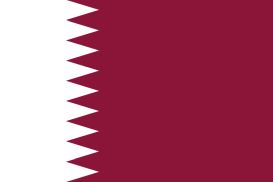
Author(s): Ministry of Transport and Communications
Resource Type: Case studies
Countries: Qatar
SDG: GOAL 10. Reduced Inequality, GOAL 16. Peace and Justice Strong Institutions, GOAL 17. Partnerships to achieve the Goal
Keywords: Access to Information, Accessibility, Digital Divide, Innovations
MADA Assistive Technology Centre
Digital Access for All
Source in English: ESCWA-OECD Case Study - Mada – Digital Access for All, Qatar
MADA – Assistive Technology Centre Qatar is a private institution for public benefit; and it is dedicated to enhance digital access for all and enabling persons with functional limitations (PFLs) - persons with disabilities and the elderly, to connect to the world of information and communication technologies (ICTs). It is considered as a Centre of Excellence in digital access in Arabic.
Implementation: 2010
Contributor(s)
Through strategic partnerships, the contributors include various local and international entities and organizations from the targeted sectors of education, community and culture, and technology.
Purpose
The initiative is aimed at promoting digital inclusion and building a technology-based community that meets the needs of the persons with disabilities and the elderly in Qatar, who have limited access and knowledge about technological advancements.
Functions
- Establishing partnerships aimed at using ICTs for enabling an inclusive community, culture and the education system.
- Providing digital accessibility consulting services and accreditation for digital platforms, in accordance with international practices and standards.
- Raising awareness on the needs of persons with functional limitations and the support services to enable them to access information independently.
- Building capabilities of digital access specialists for enhancing the quality of services.
- Promoting assistive technology solutions in Arabic through an innovation programme for equal opportunities in the digital community.
Clients
People with functional limitations, including persons with disabilities and the elderly who have limited accessibility/ awareness about technological services.
Outcome
- Mada Centre has achieved a digital accessibility rate of 90 percent amongst government websites.
- The centre has contributed to the development of a National e-Accessibility Policy.
- Their work has influenced key national digital policies and electronic and mobile services, which mention the implementation of digital accessibility standards (W3C WCAG 2.0) in all government e-services.
- Efforts of the centre support the development of local and regional assistive technology and accessibility market.
Challenges
- Lack of robust assistive technology and accessibility services infrastructure.
- The assistive technology industry is limited in the Arab region.